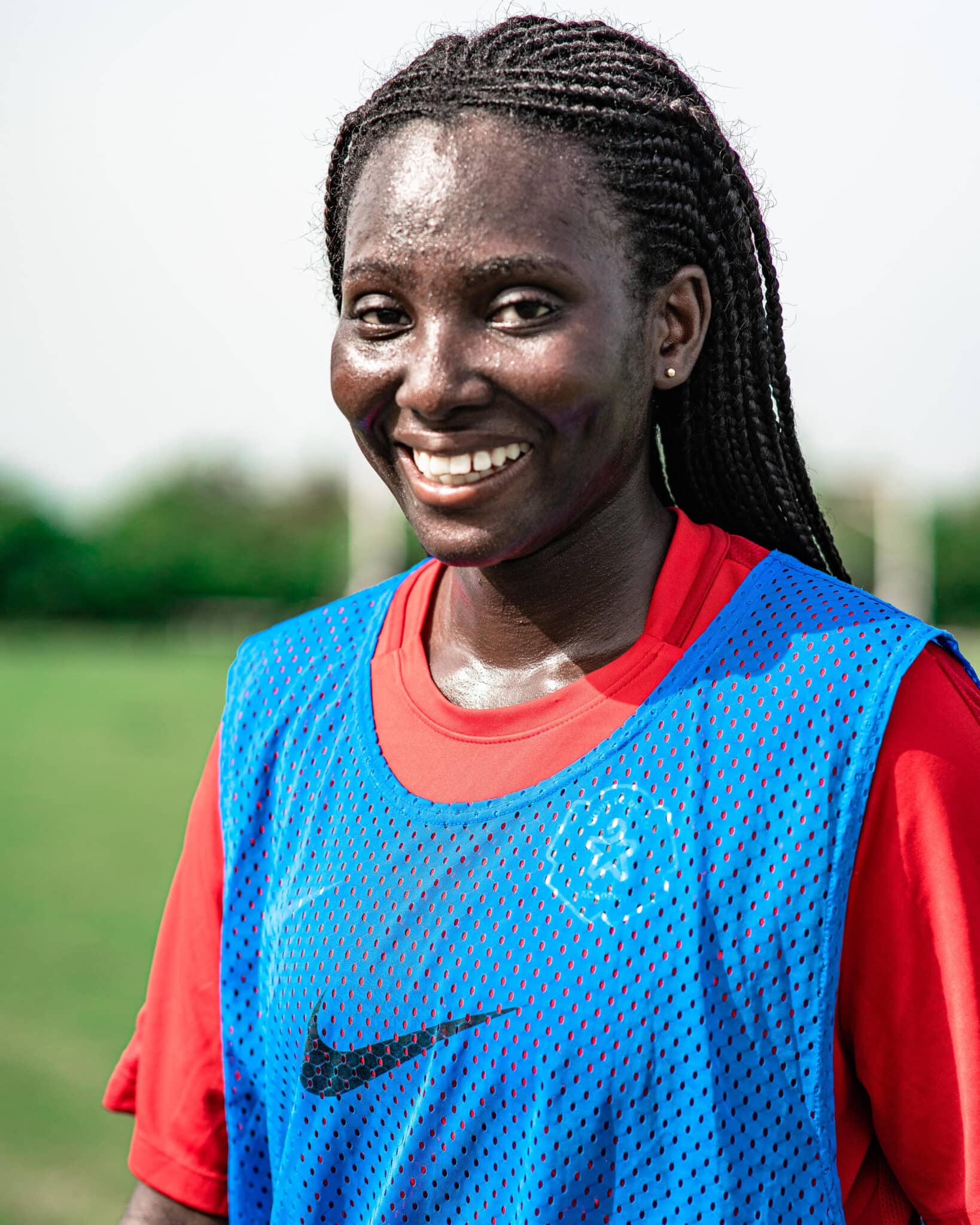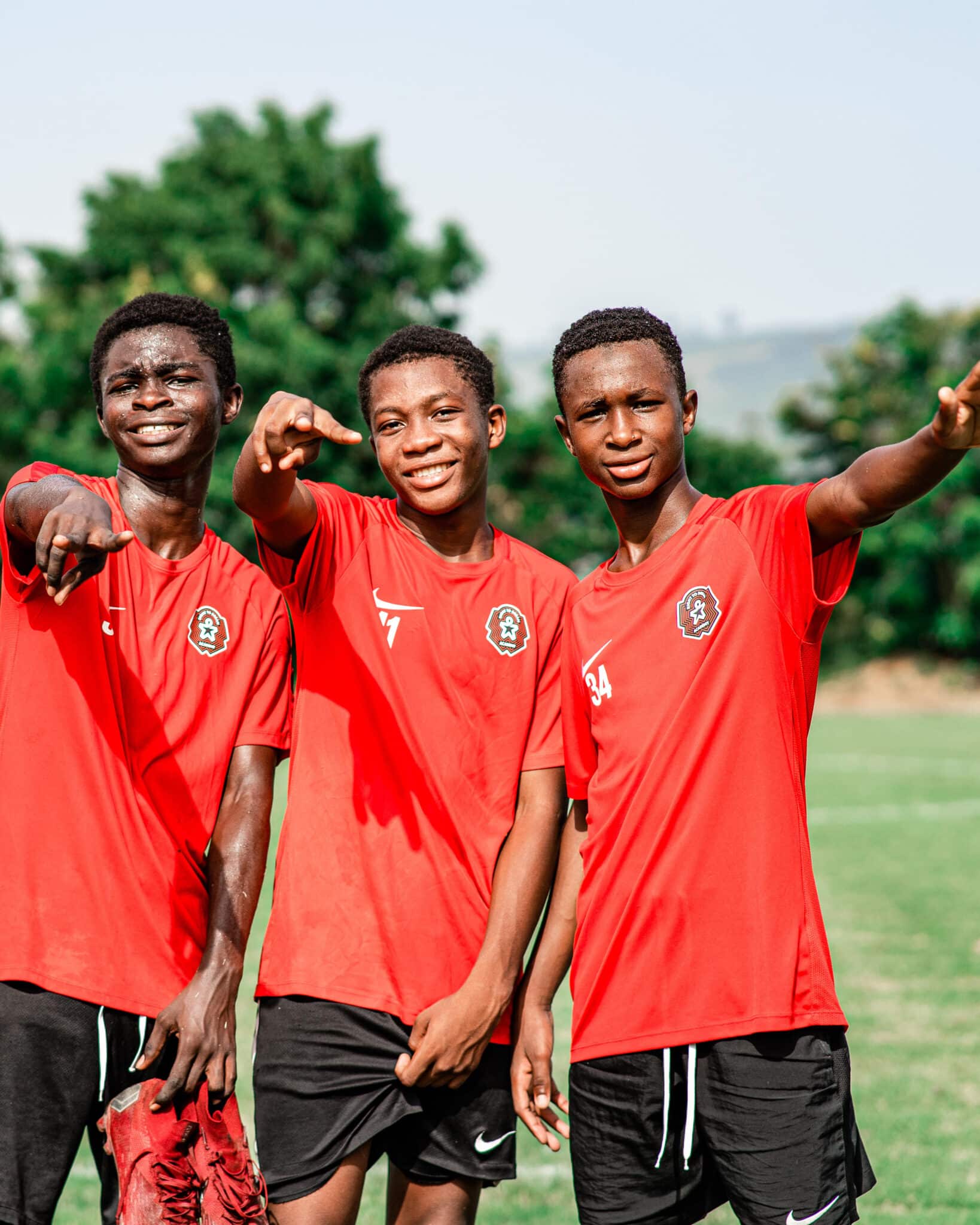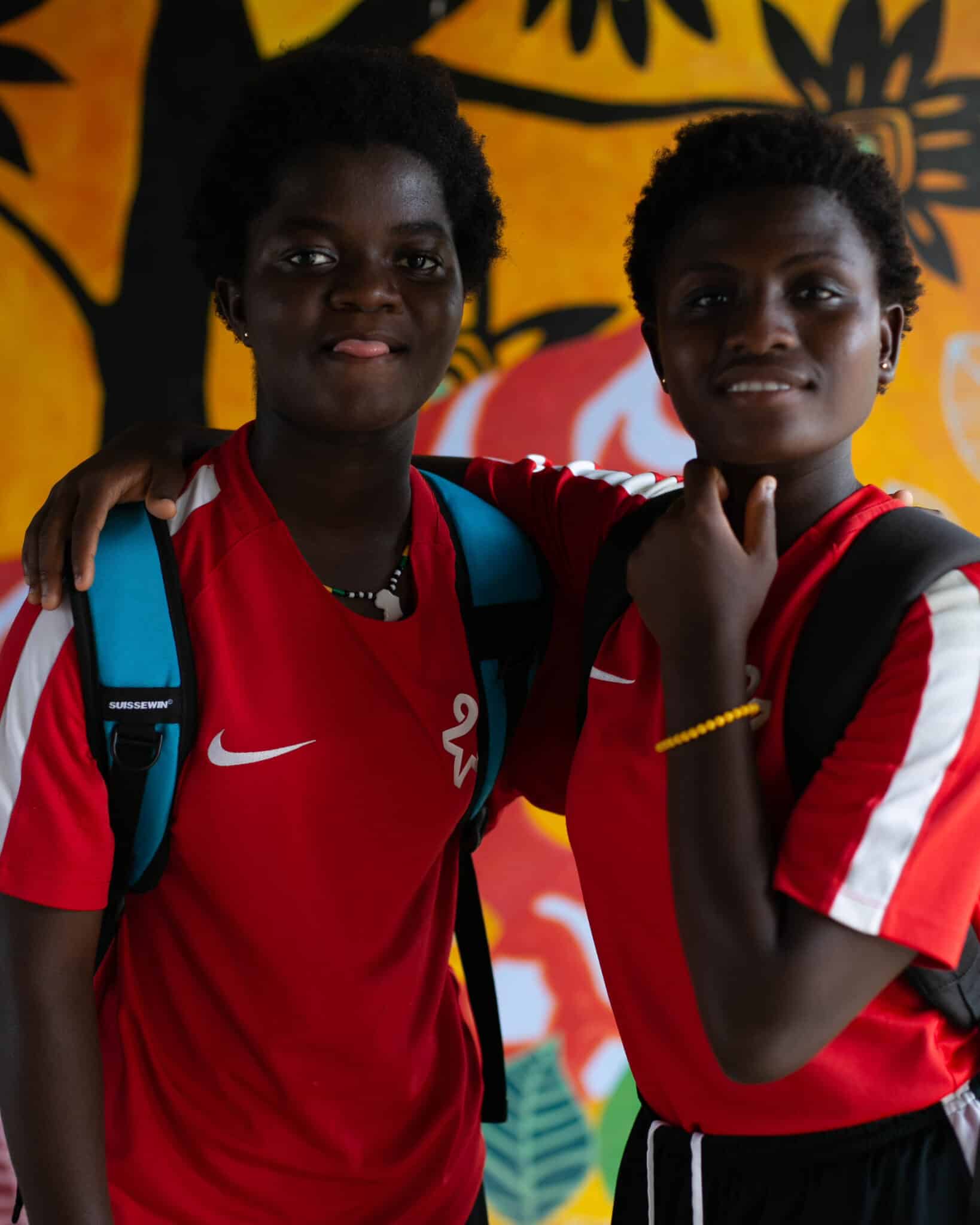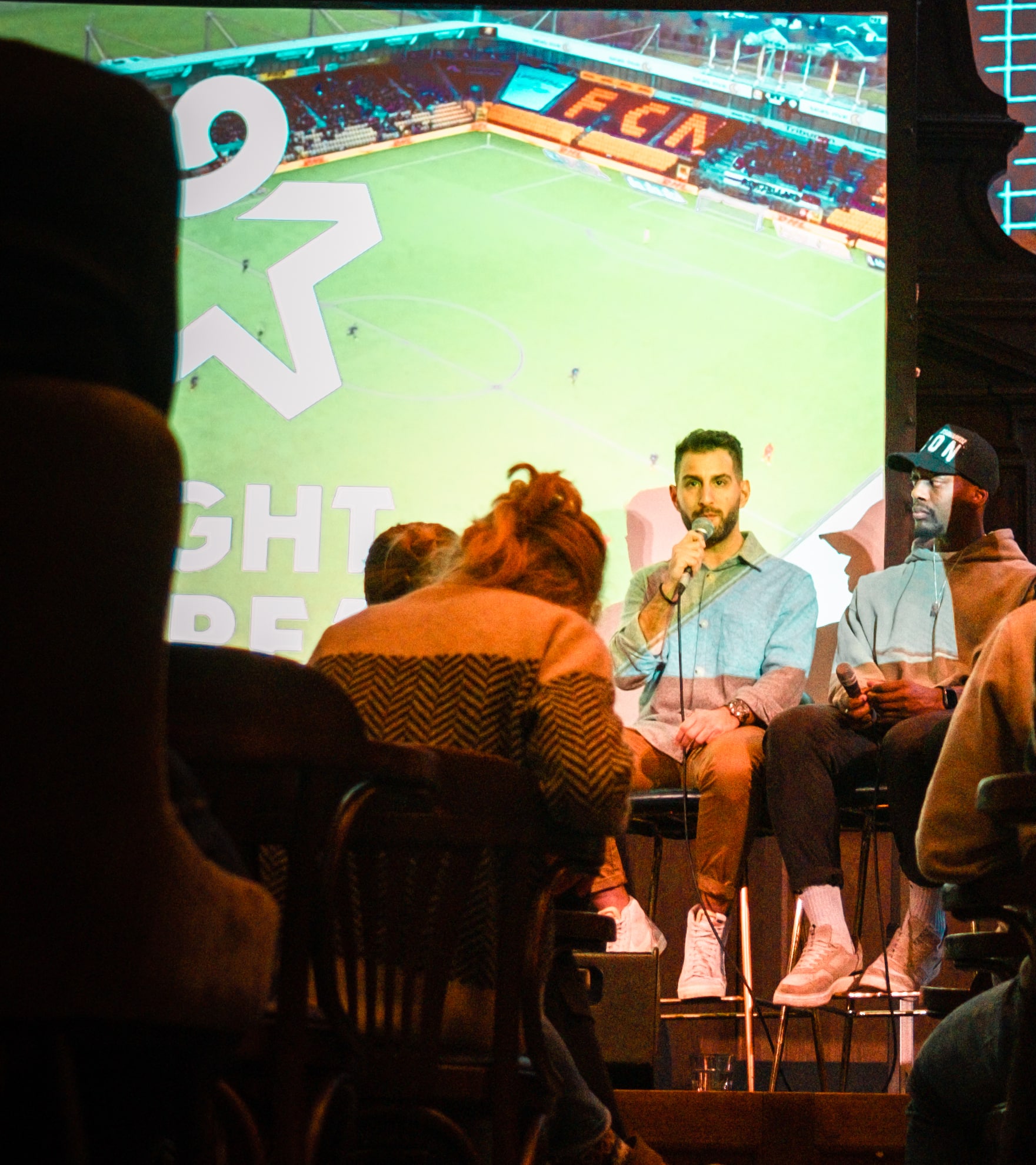

INSIGHTS
Andy Gowland, Group Head of Partnerships, Right to Dream
“We have a platform that proves that, if you support developing athletes the right way, you’re investing in future leaders and purpose-driven talent that stand for more than just football.”
Following the big news that the MLS has awarded the city of San Diego an Expansion Team that will be owned by Chairman of Man Capital and Investor/Chairman of Right to Dream Mr. Mohamed Mansour, and the Sycuan Band of the Kumeyaay Nation, extending the unique Right to Dream model into a vibrant new market, SMG Insights took some time to talk to its Group Head of Partnerships, Andy Gowland to find out more about the organisation’s ground-breaking work in football.
Andy is a strategic and operational expert with over 16 years of experience leading the development and implementation of strategies across various brands with a strong track record of developing and leading high performing brand, media, and commercial teams.
As well as his time within the Right to Dream group of academies and pro clubs, he has worked in senior EMEA roles across numerous brands, including Amazon, Accenture, Sainsbury’s, and Best Buy.
Currently, Andy also serves as a Director for Lewes Football Club, a professional women’s team in the 2nd tier of English Football, who recently played Manchester United in the FA Cup Quarter Finals, and a semi-pro men’s team in the Isthmian Premier league.
Where it all began
I met the Right to Dream founder, Tom Vernon, at a charity tournament at Stamford Bridge in 2015. A mutual friend had entered a team which included a couple Right to Dream graduates who were studying in the UK, so Tom came to watch them and we got talking after the tournament.
Like a lot of people I hadn’t really heard about Right to Dream and I was just blown away by the journey and the ways they approach football differently. Once you hear Tom speak about how it started – its vision and ambitions – it’s really difficult to not fall in love with Right to Dream.
At the time, I worked for Amazon but was already thinking about what a transition towards something I was more passionate about could look like. Football has always been a love for me, but going directly into pro football didn’t really appeal. However, the idea of working within a unique and exciting network of academies and pro football, focussed on developing young talent was something that really caught my attention.
The key was waiting for the right moment and entry point as I didn’t have a background in sport, but had built up a lot of experience in strategy development, commercial sponsorships and partnerships and also leading business change programmes, so when Right to Dream offered me a consultancy gig to help them coordinate the new strategic partnership with the Mansour family, [Right to Dream’s main shareholder] I jumped at the opportunity. And that’s where it began.
When this initial project concluded, I went on to support the Right to Dream group with its continued journey towards the professionalisation of its operations including developing and implementing a new intranet portal…
I brought my experience of working in a corporate environment with multiple brands to Right to Dream to help them to programme manage and start to explore how to develop a strategy that would make Right to Dream resonate with brands, build valuable brand partnerships and drive commercial revenue.
My role with Right to Dream in 10* (or 14!) words or less
Develop opportunities for brands, clubs & individuals to authentically connect into the RTD community.
Why what I do is important
There is a lot that goes on behind the white lines of the football pitch. I wanted to find the right way to contribute towards the game but also more specifically centre that with an organisation that focusses on youth opportunities and youth development. My role at Right to Dream enables brands to connect into all layers of the football pyramid to directly support what Right to Dream do, developing talented youngsters across its borderless academies and pro football clubs and being part of their journeys
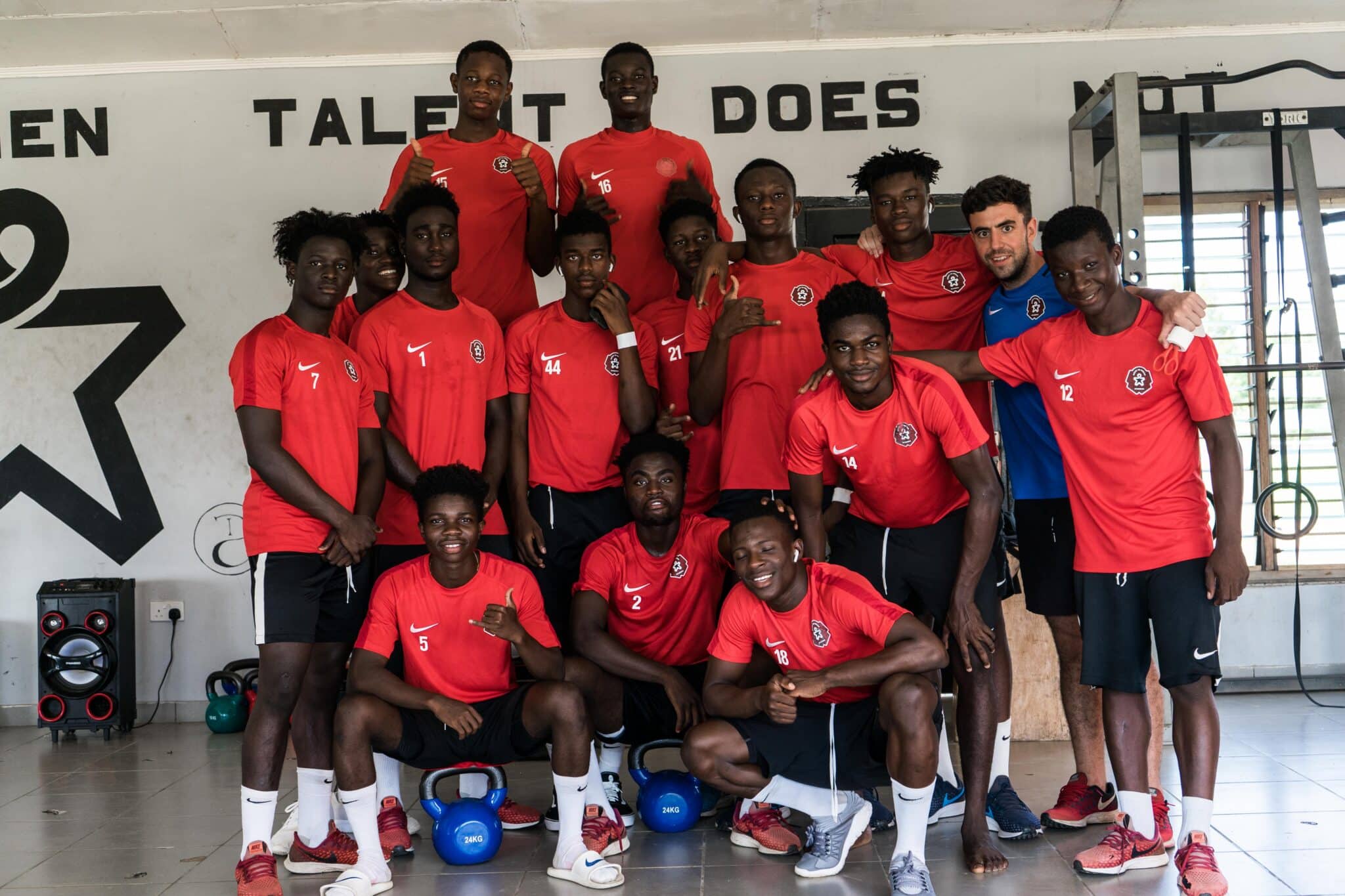
Our partnerships create inspiration and empowerment that extend Right to Dream’s reach, both operationally, but also digitally through its growing media base, showing the world that football can be done differently, where performance becomes a by-product of doing things the right way.
Why FC Nordsjaelland is a game-changer
In 2016 when Right to Dream acquired FC Nordsjaelland, it was a really bold move for an academy to lead the acquisition of a club. It [the acquisition] is a really key part of the wider strategy for Right to Dream. The pathways Right to Dream creates for its students lead into higher education via student-athlete scholarships in the UK and US as well as professional football. However, up to that point we didn’t have an owned entity that provided a direct route into the professional game. It helped to create a pathway within our own network that provides professional playing time opportunities for our players.
We are seeing the benefits of this model now: the men’s team have finished second in the Danish league and will be featuring in the Europa League qualification rounds (and have also been the youngest team in the world for the last few years) while the women’s team has reached the Cup Final.
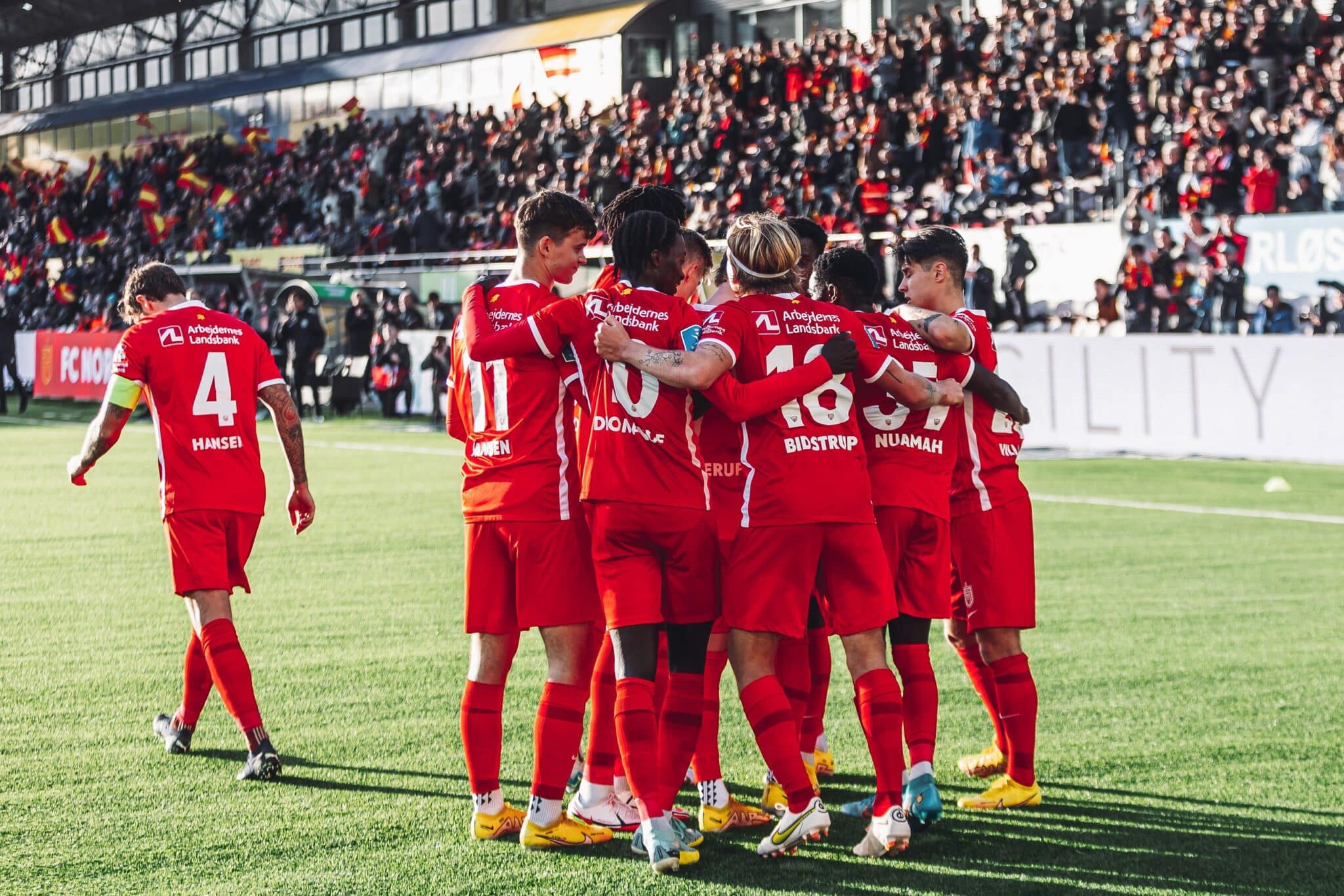
The top 50 youngest XIs ever picked in Danish league history were all selected by FC Nordsjaelland and all were picked in the last four years.
(Photo: FC Nordsjaelland)
The model is working. It has been and continues to be a really important asset and builds credibility [for Right to Dream] within the game as a group that develops rising stars. You just have to look at players like Mohammed Kudus (now at Ajax) Kamaldeen Sulemana (at Southampton), Ernest Nuamah (at FC Nordsjaelland who just won several end of season awards) as well as Mikkel Damsgaard (now at Brentford). This is also happening on the women’s side, with Kathrine Kuhl joining Arsenal this season and Princess Marfo joining FC Nordsjaelland from our Ghana academy.
”FC Nordsjaelland is helping us to build a growing track record of young men and women who go on to play at the highest level both on the international and domestic stages.
Andrew GowlandOn the successes of the unique Right to Dream model
It’s only going to get more exciting, there’s going to be a lot more of these stories emerging from the academies that feed into FC Nordsjaelland, our pro club in Egypt (TUT FC) and soon our new MLS club in San Diego as well.
Why Right to Dream’s move into the MLS with a new San Diego Franchise matters
The really exciting part to this is that it’s not just another professional club being added into the Right to Dream group, or just another club joining the MLS. The partnership with the Sycuan tribe is what makes this new venture so unique.
The MLS really bought into this different form of partnership and different acquisition of a franchise. They are really excited about the Right to Dream methodology which centres on youth and gives talented young professional playing time, supported by experienced players (both on and off the pitch). They have been really impressed by our achievements at FC Nordsjaelland, both on the pitch as well as off the pitch as well as our ability to attract incredible people to support our football model, such as Michael Essien & Djimi Traore as academy coaches & Derek Boateng as a lead scout across West Africa.
They see that the model works, and the balance of being purpose-driven and high performance can be achieved. What we’ve got is a proven platform that shows that if you support developing young athletes the right way, you’re investing into the future of football, future leaders of our communities, purpose-driven talent that stand for more than football.
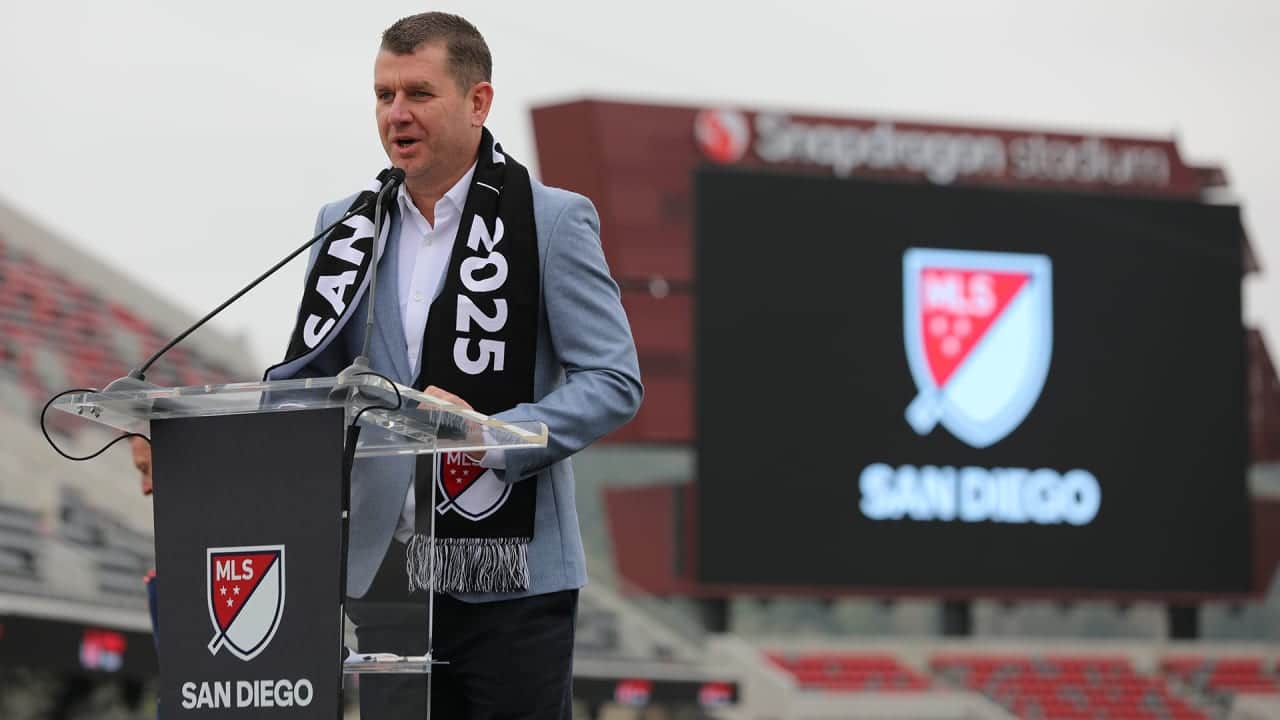
Right to Dream Founder Tom Vernon speaks at the press conference announcing the arrival of a San Diego-based Expansion team in the MLS.
(Photo: MLS)
For us, to be able to work with young American and Mexican children, to be able to give them the opportunity to play and showcase their talent outside of a pay-to-play model is what is really exciting about this new venture. It’s huge for us and for the San Diego community and gives us another platform to showcase what Right to Dream is all about. In doing so, we continue challenge the narrow world view on what excellence is and where it can come from.
My Most Challenging Moment
The most challenging moment for me at Right to Dream is one that wasn’t even directly related to me… it’s every time I see the team having to tell kids who are trialling that they haven’t made it through to the next trial, or that at the end of their trials that they haven’t been successful in joining one of our academies. It is really hard to detach your emotions from something like that and it’s very difficult to experience.
As a parent to three young children myself, you want them to receive access to as many opportunities in life as possible and to achieve their dreams. So, when you put yourself in the position of the parents of these kids when they receive this tough news… it is just heart-breaking to watch. That is easily one of the most challenging parts of this role and one whose emotional impact continues to surprise me. Seeing how our people guide the kids through the experience though is incredible, our scouting team are incredible humans!
My Proudest Moment
There are many but the one that stands out the most is a more personal one: my kids over the last couple of years have started to show a real natural interest in football and what I do. I’ve never tried to push it on them, but as they’ve gotten older, they are asking a lot more about it. It makes me proud that my contribution to sport and working within an organisation that creates opportunities for young talent to play football or use football to progress in life is inspiring my own children.
I have two boys and a little girl, the boys are becoming very vocal about coming to watch football in the places I work, and the little one just loves kicking a ball around!
Being part of an organisation that my kids can look up to and be inspired by makes it even more special. So, yes… that moment when the kids started to vocalise their interest and enthusiasm in what I do has probably been my proudest moment. Not sure they would’ve been as interested in some of my previous jobs!
A Memory I’ll Never Forget
It was actually in Egypt when we started trials there a few years ago. I’m one of those people that gets really excited by just watching football so I took my boots and gloves on the off chance I could get to use them! I saw a few lads who were trialling as keepers just sitting on the sidelines waiting to get the call to go and play. It’s tough for goalkeepers, it’s a tricky position and there’s not as much support at times, so I put my boots and gloves on and offered to warm them up… the problem was that none of them knew how to speak English.
There was one lad I managed to connect with and explain what I was trying to do. I gave him some tips (from my own limited experience as a goalkeeper) and what I loved is that he took some of them on board and went out there [to his trial] and started doing the things I showed him! He ended up passing through the trial stages and he’s now part of the academy. It was just really great to play a small part in his journey. Perhaps it will be insignificant in the grand scheme of things but it’s small part, nonetheless.
My Connection to SMG
I’ve had a lot of people talk to me about SMG’s growing capabilities and the people that it’s hiring and bringing in. I’ve been really impressed by the breadth of skills and experience that SMG is bringing together. It’s a really exciting time for an agency like SMG to find ways to broaden what it can offer in the wider sporting landscape. I think now is the time for us to explore working together more, for sure.
My advice to anyone wanting to get into a career in sports
I think it’s important to take time to look at the ecosystem of sport and understand that there are so many different areas that you can go into. The most essential thing is to really think about what is most important to you as this will help you to filter what side of ‘sports’ you want to work in – pro level, academies, coaching, mental health & wellbeing, commercial, athlete education, nutrition, etc – and then really understanding what your skill sets are and how your experience can connect to the area you want to work in.

Do your due diligence: look into the way that companies, clubs, and brands are structured to find the right fit for you. I believe most experience is transferrable so you just need to take some time and find the right entry point.
What sport needs is more people who are passionate about core values, otherwise sport won’t ever evolve to be anything more than just a superficial performance and results driven industry.

